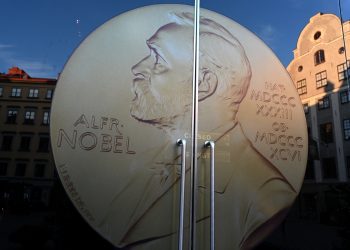Quebec-based Medicago is one of more than 120 companies worldwide working on a vaccine for COVID-19, but ultimately we need a long-term and globally minded response.
Canada is playing its part in the worldwide search for a prospective COVID-19 vaccine, but its Quebec-based manufacturer is already trying to temper expectations. Bruce Clark, president and CEO of Medicago, has warned assumptions that any of the potential vaccines in development globally can suddenly solve all our problems relating to the pandemic are hollow ones. More than 120 companies around the world are currently working on vaccines, many of whom are entering the vaccine space for the first time.
“Whatever vaccine we get in this first round—unless it’s a miracle—it’s not going to be perfect,” Clark told the media after his company began trials Monday in Quebec City. “It’s going to have to undergo development, it’s going to take probably years to come up with an understanding of the right vaccine, the right approach. It’s not the panacea.”
Canada’s deputy public health officer Dr. Howard Njoo expressed similar cautions Tuesday, while acknowledging the need to push forward with trials for both vaccines and treatments to tackle COVID-19 symptoms. “Lots of different steps are still ahead of us before we might even anticipate that there might be a safe, effective vaccine that would be available for use in the general population,” Njoo said.
Trials underway
Medicago’s first phase of clinical trials will test the safety of its plant-based vaccine on 180 healthy men and women, aged 18 to 55. The randomized, partially blinded study will employ technology that does not involve animal products or live viruses.
Vaccine developers generally use chicken eggs to propagate a virus, but Medicago will be using recombinant technology involving the genetic sequence of a virus, with living plants as the host. Clark has said that the plant-based approach is significantly faster and offers more consistent results than egg-based or cell-based methods. It’s the same method Medicago used for a proposed seasonal flu vaccine that is currently under review by Health Canada. If approved, it would be the first plant-based vaccine in the world, according to Clark.
Medicago intends to determine the safety of the vaccine, as well as the effectiveness of the adjuvants and dosing, by October. Based on the results, researchers would begin a second, more targeted trial phase involving about 1,000 participants followed by a third phase that would involve between 15,000 and 20,000 subjects and could be carried out globally.
By the end of 2023, the company hopes its Quebec City plant would be able to produce up to one billion doses of a COVID-19 vaccine annually.
Local players, global response
The good news is that a vaccine is on its way. Yet Bruce Clark and others readily admit that much is still unknown about COVID-19, including how it may be impacted by the regular flu season later this year. The likeliest scenario for many observers is that a vaccine will offer only part of the solution, along with new therapeutics and ongoing public health interventions. Furthermore, countries should resist the temptation of nationalist agendas that might emerge with a viable vaccine and acknowledge that the fight against COVID-19 is truly global. That in itself will produce challenges. Meeting the demand for a vaccine will require multiple manufacturers, multiple distribution routes, and a huge amount of international co-operation, orchestrated through an organization such as the WHO.
Just as the impact of the pandemic itself has been unprecedented, so our global response must also be unprecedented.












